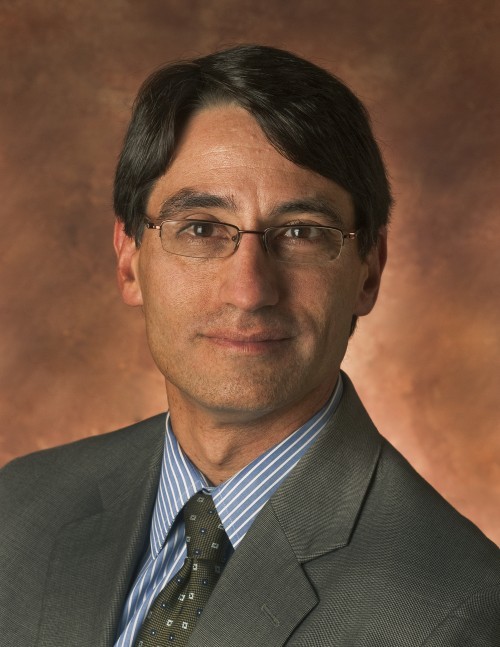As Pyongyang spurs its nuclear development with its fifth nuclear test, South Korea and the US should fine-tune their pressure-focused North Korea policies and seek fresh ways to put a brake on the regime’s weapons program, experts said Thursday.
Dozens of renowned analysts from the US, China, Japan and other countries gathered in Seoul for a conference hosted by the Korea Institute for National Unification. Under the theme “Rapidly changing East Asian order and the Korean Peninsula,” they assessed the security situation on the peninsula and relations between the regional stakeholders following the Sept. 9 blast.
A multitude of participants voiced the need for Seoul and Washington to recalibrate their current approach toward the communist state that they said has done little to bring it back to the negotiating table while its threats continued to magnify.
Dozens of renowned analysts from the US, China, Japan and other countries gathered in Seoul for a conference hosted by the Korea Institute for National Unification. Under the theme “Rapidly changing East Asian order and the Korean Peninsula,” they assessed the security situation on the peninsula and relations between the regional stakeholders following the Sept. 9 blast.
A multitude of participants voiced the need for Seoul and Washington to recalibrate their current approach toward the communist state that they said has done little to bring it back to the negotiating table while its threats continued to magnify.

“(US President Barack) Obama’s preferred approach -- patient diplomacy and pressure designed to convince the DPRK (North Korea) to make a ‘strategic choice’ to change course -- has failed,” said Frank Jannuzi, president and chief executive of the Washington-based Mansfield Foundation who was a Korea policy advisor to Obama.
With a presidential election drawing near, the next US leader should re-examine the country’s Korea policy “starting from scratch,” Jannuzi said. He proposed a launch of a “people-centered, multifaceted engagement strategy” based on the Helsinki process during the Cold War, coupled with targeted sanctions on the North’s nuclear programs, may help defuse tension and eventually lay the groundwork for unification.
“It does not offer a quick fix to end the North’s nuclear ambitions or eliminate its human rights violations, but neither do the alternatives of coercive diplomacy or military strikes,” Jannuzi said.
“Something must be done both to the near-term threat posed by North Korea’s unrestrained pursuit of nuclear weapons, and to establish a long-term course designed peacefully to unify the peninsula and eliminate all nuclear weapons from Korea.”
Park Ihn-hwi, a professor at Ewha Womans University, raised the possibility for Pyongyang to urge peace treaty talks with the backing of Beijing in the near future, which could complicate Seoul’s strategy.
“With time, given the growing doubt on the possibility of resolving the North Korea nuclear issue, as well as the current imposition of sanctions, it is expected that China will support North Korea’s logic,” he said.
“(For South Korea) it is a huge diplomatic burden if China initiates a peace offensive in coordination with North Korea by, for example, pushing for a ‘peace accord.’”
Koh Yu-hwan, a professor of Dongguk University, echoed Park’s view, calling for Seoul and Washington to shift their focus toward stopping further progress in Pyongyang’s nuclear program.
“The DPRK’s nuclear capability will become more sophisticated unless the ROK and the US change their policy from the principle of dismantling nuclear weapons first to the principle of preventing the nuclear advancement first and dismantling it later,” he said.
“A realistic solution at this juncture is to set the denuclearization and peace treaty as the ultimate goal and start a negotiation with the mid-term goal first.”
By Shin Hyon-hee (heeshin@heraldcorp.com)
With a presidential election drawing near, the next US leader should re-examine the country’s Korea policy “starting from scratch,” Jannuzi said. He proposed a launch of a “people-centered, multifaceted engagement strategy” based on the Helsinki process during the Cold War, coupled with targeted sanctions on the North’s nuclear programs, may help defuse tension and eventually lay the groundwork for unification.
“It does not offer a quick fix to end the North’s nuclear ambitions or eliminate its human rights violations, but neither do the alternatives of coercive diplomacy or military strikes,” Jannuzi said.
“Something must be done both to the near-term threat posed by North Korea’s unrestrained pursuit of nuclear weapons, and to establish a long-term course designed peacefully to unify the peninsula and eliminate all nuclear weapons from Korea.”
Park Ihn-hwi, a professor at Ewha Womans University, raised the possibility for Pyongyang to urge peace treaty talks with the backing of Beijing in the near future, which could complicate Seoul’s strategy.
“With time, given the growing doubt on the possibility of resolving the North Korea nuclear issue, as well as the current imposition of sanctions, it is expected that China will support North Korea’s logic,” he said.
“(For South Korea) it is a huge diplomatic burden if China initiates a peace offensive in coordination with North Korea by, for example, pushing for a ‘peace accord.’”
Koh Yu-hwan, a professor of Dongguk University, echoed Park’s view, calling for Seoul and Washington to shift their focus toward stopping further progress in Pyongyang’s nuclear program.
“The DPRK’s nuclear capability will become more sophisticated unless the ROK and the US change their policy from the principle of dismantling nuclear weapons first to the principle of preventing the nuclear advancement first and dismantling it later,” he said.
“A realistic solution at this juncture is to set the denuclearization and peace treaty as the ultimate goal and start a negotiation with the mid-term goal first.”
By Shin Hyon-hee (heeshin@heraldcorp.com)








![[Kim Seong-kon] Democracy and the future of South Korea](http://res.heraldm.com/phpwas/restmb_idxmake.php?idx=644&simg=/content/image/2024/04/16/20240416050802_0.jpg&u=)







![[KH Explains] Hyundai's full hybrid edge to pay off amid slow transition to pure EVs](http://res.heraldm.com/phpwas/restmb_idxmake.php?idx=652&simg=/content/image/2024/04/18/20240418050645_0.jpg&u=20240418181020)

![[Today’s K-pop] Zico drops snippet of collaboration with Jennie](http://res.heraldm.com/phpwas/restmb_idxmake.php?idx=642&simg=/content/image/2024/04/18/20240418050702_0.jpg&u=)